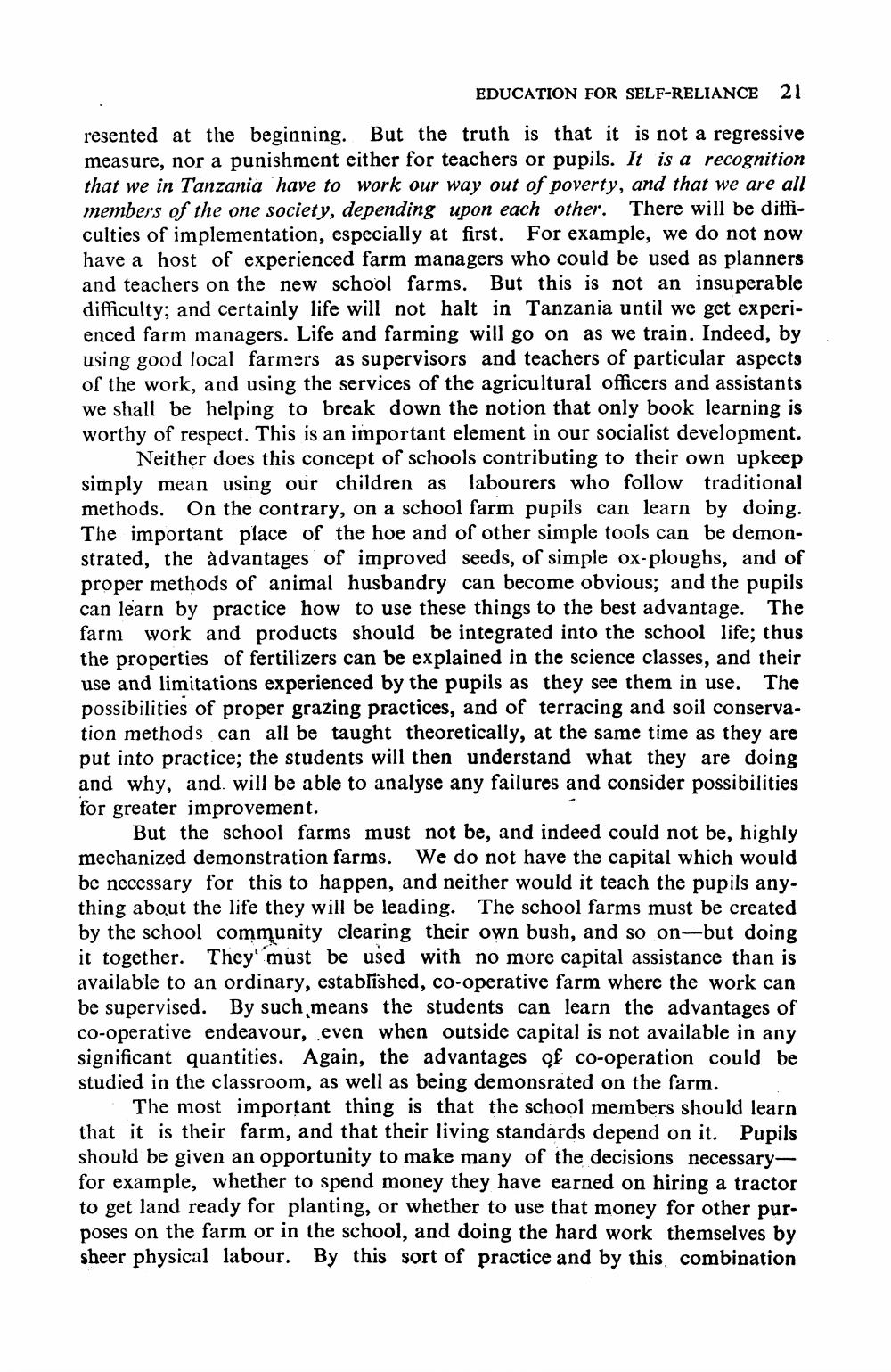________________
EDUCATION FOR SELF-RELIANCE 21
resented at the beginning. But the truth is that it is not a regressive measure, nor a punishment either for teachers or pupils. It is a recognition that we in Tanzania have to work our way out of poverty, and that we are all members of the one society, depending upon each other. There will be difficulties of implementation, especially at first. For example, we do not now have a host of experienced farm managers who could be used as planners and teachers on the new school farms. But this is not an insuperable difficulty; and certainly life will not halt in Tanzania until we get experienced farm managers. Life and farming will go on as we train. Indeed, by using good local farmers as supervisors and teachers of particular aspects of the work, and using the services of the agricultural officers and assistants we shall be helping to break down the notion that only book learning is worthy of respect. This is an important element in our socialist development.
Neither does this concept of schools contributing to their own upkeep simply mean using our children as labourers who follow traditional methods. On the contrary, on a school farm pupils can learn by doing. The important place of the hoe and of other simple tools can be demonstrated, the advantages of improved seeds, of simple ox-ploughs, and of proper methods of animal husbandry can become obvious; and the pupils can learn by practice how to use these things to the best advantage. The farm work and products should be integrated into the school life; thus the properties of fertilizers can be explained in the science classes, and their use and limitations experienced by the pupils as they see them in use. The possibilities of proper grazing practices, and of terracing and soil conserva. tion methods can all be taught theoretically, at the same time as they are put into practice; the students will then understand what they are doing and why, and. will be able to analyse any failures and consider possibilities for greater improvement.
But the school farms must not be, and indeed could not be, highly mechanized demonstration farms. We do not have the capital which would be necessary for this to happen, and neither would it teach the pupils anything about the life they will be leading. The school farms must be created by the school community clearing their own bush, and so on-but doing it together. They must be used with no more capital assistance than is available to an ordinary, established, co-operative farm where the work can be supervised. By such means the students can learn the advantages of co-operative endeavour, even when outside capital is not available in any significant quantities. Again, the advantages of co-operation could be studied in the classroom, as well as being demonsrated on the farm.
The most important thing is that the school members should learn that it is their farm, and that their living standards depend on it. Pupils should be given an opportunity to make many of the decisions necessaryfor example, whether to spend money they have earned on hiring a tractor to get land ready for planting, or whether to use that money for other purposes on the farm or in the school, and doing the hard work themselves by sheer physical labour. By this sort of practice and by this, combination




